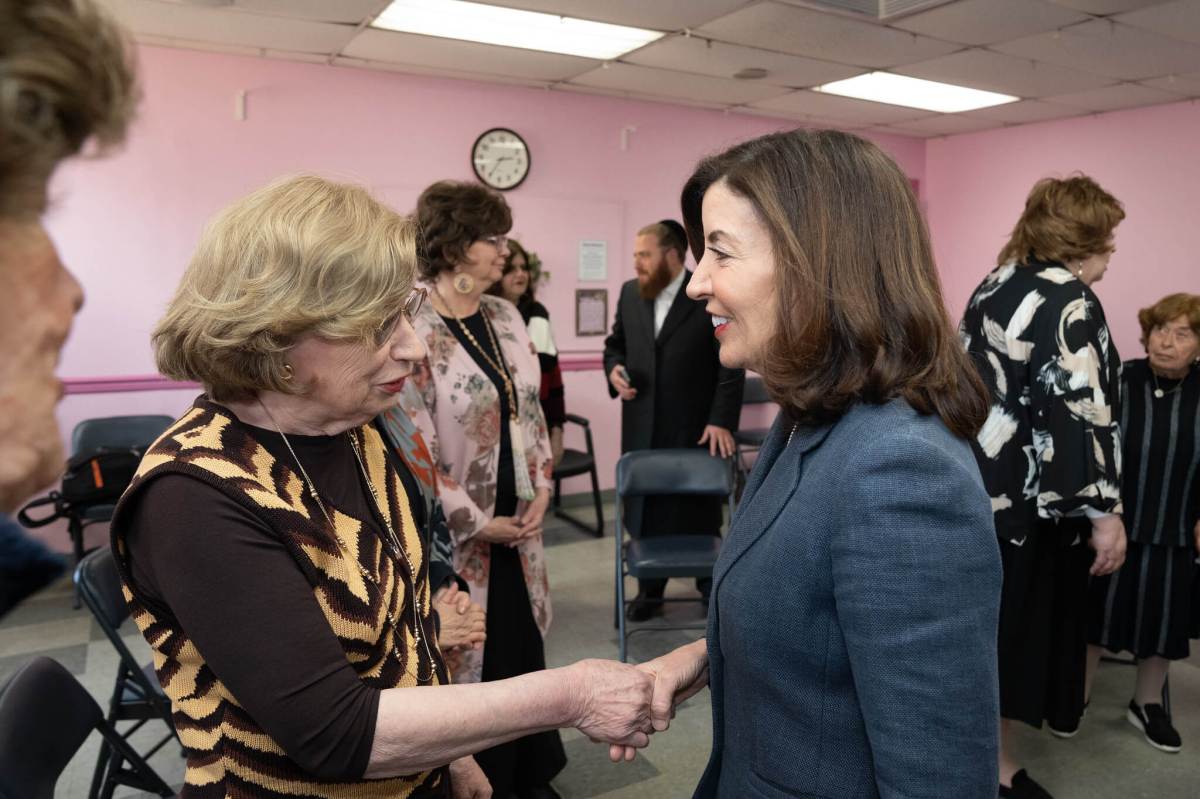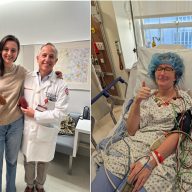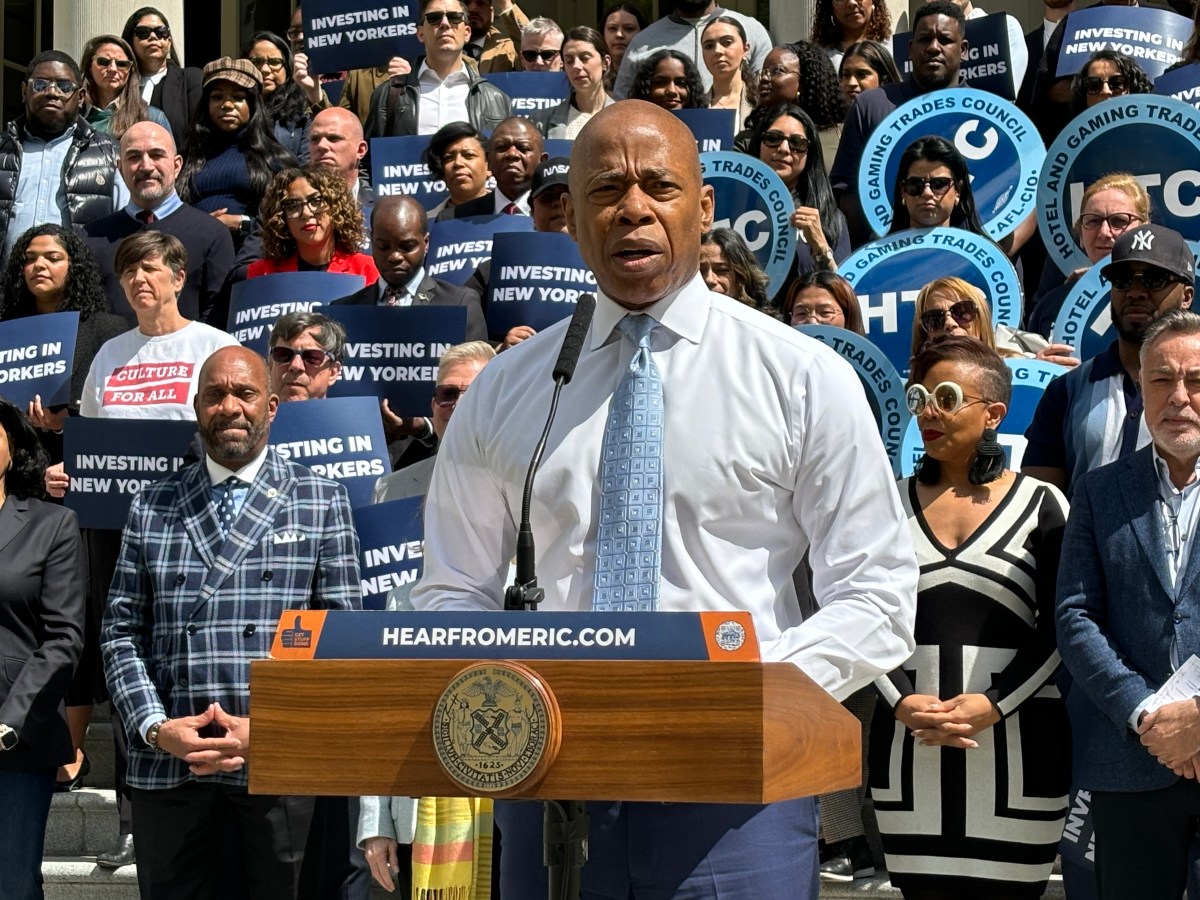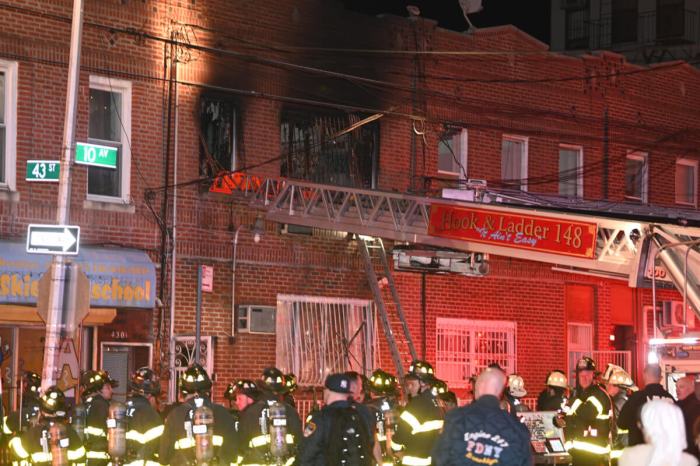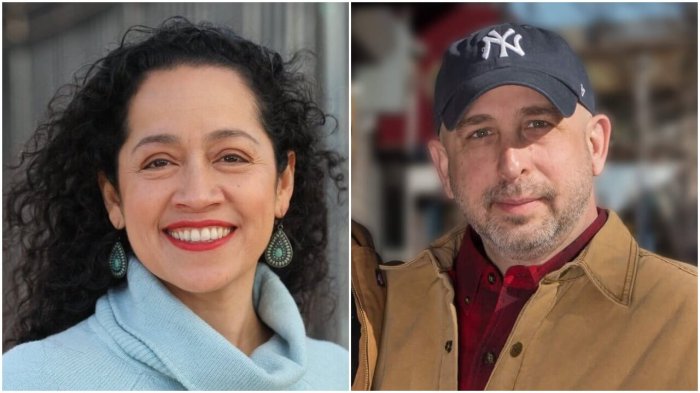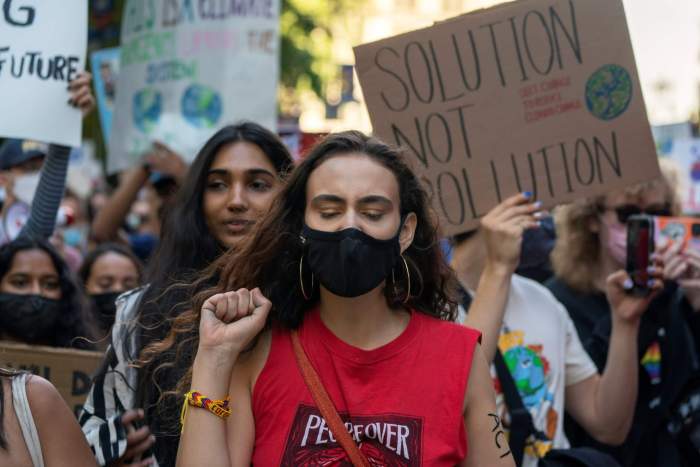New York State is dedicating $2.6 million to enhance services to support Holocaust survivors in its recently adopted budget, Gov. Kathy Hochul announced on Wednesday in Borough Park.
Hochul made the announcement on the eve of Holocaust Remembrance Day after speaking with women survivors, who were children and teens during the Shoah and are now in their 80s and 90s, at the Borough Park YMCA.
“We are here to recommit ourselves to supporting the survivors. And it is our duty, not just as New Yorkers, but as citizens of the world,” Hochul said Thursday. “And it’s something I take very seriously, but while I’m governor, and I hope to be governor for a long time, God-willing, I want to make sure we have the resources to take care of you. So I can say we should take care of people and help them thrive and do well, but we need to put money behind.”
The money will go to 29 community-based organizations assisting survivors as they deal with the travails of old age, including case management, food and housing assistance, and mental health services.
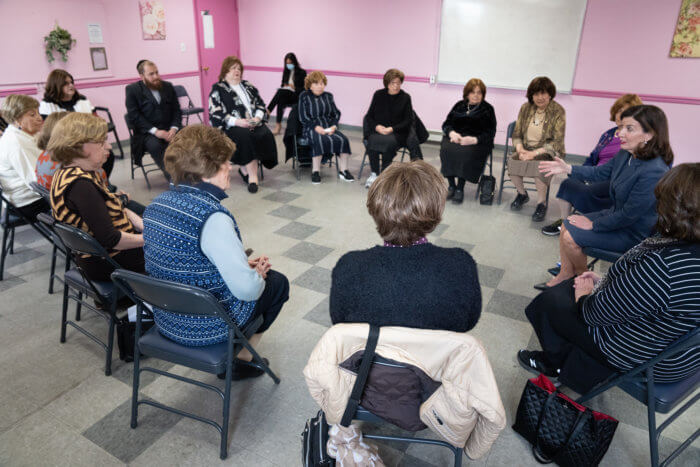
At least 6 million European Jews were killed by the Nazis during the Holocaust, and the survivors have borne the scars for their entire lives. Having ended more than 75 years ago, the number of Holocaust survivors is rapidly dwindling: about 40,000 survivors are living in the New York Metropolitan Area, the governor said, down from about 73,000 a decade ago. A substantial portion of those remaining live in Brooklyn.
About 40 percent of survivors in New York are living in poverty, the governor said. Many struggle to pay their rent every month, and scores suffer from food insecurity. The pandemic has also had a substantial destabilizing effect for survivors.
“They had the most challenging, horrific start in life as children, but as they grow older, don’t they deserve more than a life in poverty?” Hochul said.
In recent years, the increasing frequency of hate crimes against Jews has also become cause for serious concern among survivors. Eva Ganz was just a child when she was forced by the Nazis to leave her home in Budapest and migrate to a ghetto, and survived by living with a gentile woman until the end of the war; her entire family except herself and her mother were killed.
“When we see even the slightest indication of antisemitism, our antennas go up because we have been there, we’ve seen it, and we have seen the horrors it can bring,” Ganz said on Wednesday. “So we cannot let it just slide by. It’s very important to us, not only antisemitism but any kind of hate act.”
Antisemitic hate crimes in New York rose by 24 percent last year, the highest level in decades, according to a new report from the Anti-Defamation League. New York led all states in the nation with 416 antisemitic incidents. 34 antisemitic assaults took place in Brooklyn last year, more than half of the total recorded in the state. The adopted budget includes $25 million in security funding for the groups most vulnerable to the rise in hate crimes, the governor said.
“I feel it’s not enough to say it’s unacceptable and we won’t tolerate it,” Ganz said. “We have to do something actively.”
Hochul also stressed the importance of Holocaust education in schools as the Shoah recedes further into the past, and fewer and fewer people who experienced it remain alive. Earlier this week, the State Assembly removed a bill from consideration that would require the State Education Department to study how well public schools are teaching about the Holocaust in New York; Hochul said she is hoping to see the bill pass.


